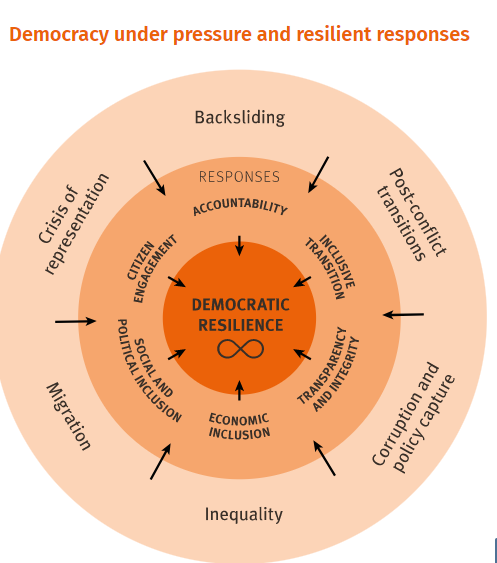
International IDEA
U.S. officials are concerned by democratic backsliding across Africa, which has seen a wave of military coups in recent months — notably including in Sudan, where a coup last month squashed a democratic transition that followed the 2019 ouster of the country’s longtime autocratic ruler, Omar Hassan al-Bashir, the Times reports:
Experts say the four successful military coups in Africa this year — also in Guinea, Chad and Mali — are the highest number in more than 40 years. ….The conflict in Africa’s second most populous country has already featured numerous alleged atrocities, including rape, executions and looting. The fighting threatens the stability not only of a key U.S. partner on the continent but all of East Africa, experts say.
“I hate to be alarmist, but all the warning signs are flashing red in Ethiopia right now, and we’re not using all the tools at our disposal,” said Cameron Hudson, a director of African affairs at the Obama-era National Security Council, who believes the Biden administration has struggled to respond to the crises in Sudan and Ethiopia, and called for more aggressive U.S. action.
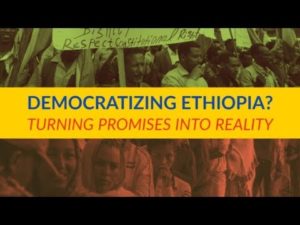 “They are a little bit on their heels, I think,” he said, adding that the descent of Ethiopia into chaos would be “a huge strategic setback for this administration.”
“They are a little bit on their heels, I think,” he said, adding that the descent of Ethiopia into chaos would be “a huge strategic setback for this administration.”
“We find ourselves in a moment of democratic reckoning,” according to U.S. secretary of state, Antony Blinken. And not only beyond U.S. borders. Two-thirds of American citizens believe that their own democracy is jeopardized.
The three main themes of the Biden Administration’s projected Summit for Democracy include countering authoritarianism, combatting corruption, and advancing human rights.
However, if the ultimate goal is to expand the ranks of democratic nations, supporting democratic breakthroughs deserves a prominent role on the agenda, writes Elizabeth Hoffman, CSIS Director of Congressional and Government Affairs.
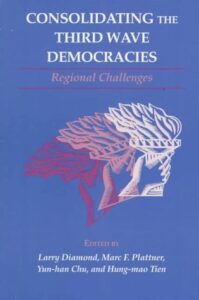 In Burma, Tunisia and Sudan, the United States failed to leverage its investment to push for key systematic and political reforms which could have prevented democratic backsliding. The U.S. government and the international community can play a key role in supporting those pushing for change from within by employing a number of tools, argues Hoffman, a former staffer at the National Endowment for Democracy (NED):
In Burma, Tunisia and Sudan, the United States failed to leverage its investment to push for key systematic and political reforms which could have prevented democratic backsliding. The U.S. government and the international community can play a key role in supporting those pushing for change from within by employing a number of tools, argues Hoffman, a former staffer at the National Endowment for Democracy (NED):
- Linking removal of sanctions to key structural and institutional reforms. Once a democratic transition occurs there is often a rush to remove sanctions aimed at punishing the previous authoritarian government….. The international community should instead leverage sanctions removal to ensure implementation of reforms that are critical for the success of an enduring democratic transition. …
- Equipping newly elected and appointed government leaders with skills to govern. In countries that have experienced long periods of autocratic rule, a new cadre of leaders with limited experience in the public sector. Making the switch from protest to politics can be challenging, particularly for those who have no experience living in a democracy….
- Investing in robust civil society. While many multilateral and development institutions focus on providing assistance to government structures, investment in developing a robust civil society sector is often overlooked. Institutions are critical. However, without a civil society sector to monitor and hold government accountable, educate and inform citizens and develop policy recommendations even the most sophisticated democratic institutions cannot function properly….
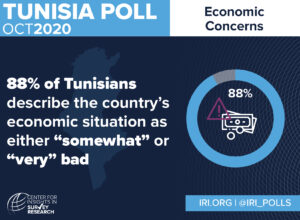 Incentivizing foreign direct investment and expanding economic opportunities. Often times, the grievances that mobilize citizens to demand a change in the system are economic. The Jasmine Revolution in Tunisia and subsequent Arab Spring started after a street vendor named Mohamed Bouazizi set himself on fire in desperation after authorities continually interfered in his ability to run his small business. The protests which sparked the transition in Sudan began due to popular frustration over the rising prices of fuel and bread. Once a transition occurs, citizens expect their new government to deliver …
Incentivizing foreign direct investment and expanding economic opportunities. Often times, the grievances that mobilize citizens to demand a change in the system are economic. The Jasmine Revolution in Tunisia and subsequent Arab Spring started after a street vendor named Mohamed Bouazizi set himself on fire in desperation after authorities continually interfered in his ability to run his small business. The protests which sparked the transition in Sudan began due to popular frustration over the rising prices of fuel and bread. Once a transition occurs, citizens expect their new government to deliver …- Sustained engagement. Policy in the United States is often driven by headlines, not to mention our own internal political cycles. Too often, the U.S. government is quick to respond immediately following a transition, but as current events develop and administrations and congressional majorities change attention is diverted to the latest crisis or new priorities. Consolidating a democratic transition can take up to a generation, and U.S. policymakers must develop long term strategies for these scenarios….RTWT
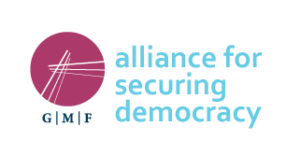 Rather than focusing on solutions to specific issues or settling on a laundry list of the least-common-denominator commitments, the summit should step back and anchor dialogue around three broader principles that cut across different challenges and push for solutions outside the box, argues Director and Senior Fellow at the Alliance for Securing Democracy:
Rather than focusing on solutions to specific issues or settling on a laundry list of the least-common-denominator commitments, the summit should step back and anchor dialogue around three broader principles that cut across different challenges and push for solutions outside the box, argues Director and Senior Fellow at the Alliance for Securing Democracy:
- Building durable communities and publics. In many countries, trust in government is low, disinformation flourishes, and authoritarians are winning at the ballot box. ….. We must invest in communities to foster faith in democratic governance and inoculate people against disinformation and the siren calls of authoritarians. Governments should consider implementing more widespread civic education and experiment with mandatory civil service.. ..
- Rethinking political representation. There are ways to change political party function, create political opportunities for a broader spread of society, and adjust electoral math. Political finance regimes can thwart malign finance, level the playing field, and encourage diverse candidates to run for office. Some countries have also implemented regulations to enforce internal party democracy and competition, as well as measures such as gender quotas to encourage more women to enter politics. Rank choice and other voting measures can also expand the edges of participation….
- Understanding democracy as a matter of global security. ….Democratic global governance that is committed to transparency, incorporates diverse voices, and is based on cooperation and joint solutions is essential to meeting today and tomorrow’s threats. To achieve this, democracies must support one another, sharing best practices and tools, and defending each other in the face of rising authoritarianism. We must be mindful that autocratic regimes are aiding aspiring autocrats elsewhere through investments, technology transfers, and other methods to silence civil society and opposition voices. ..RTWT
 Digital technologies are shaping a new world order, one that is no longer defined solely by nation-states and multilateral institutions, notes Alina Polyakova, the president and C.E.O. of the Center for European Policy Analysis. Rather than being defined by order, today’s geopolitics are defined by ambiguity and fluidity. But one thing is clear: there is no going back to normal.
Digital technologies are shaping a new world order, one that is no longer defined solely by nation-states and multilateral institutions, notes Alina Polyakova, the president and C.E.O. of the Center for European Policy Analysis. Rather than being defined by order, today’s geopolitics are defined by ambiguity and fluidity. But one thing is clear: there is no going back to normal.
The digital transformation sparked a long-term restructuring of global power balances that is only beginning to unfold, she adds. And while it may be convenient to simplify this into black and white – democracy versus authoritarianism – the truth is that the world looks increasingly gray, with many countries somewhere in between.
Another Coup d’état in Sudan: An Exploration of the Prospects of Democracy and Human Rights: Since independence, the people of Sudan have endured a series of coups, wars, and unspeakable violence including a modern-day genocide, Harvard’s Human Rights Program adds. Despite these misfortunes, Sudan also has a proud history of pro-democracy protest movements that resisted authoritarianism. In a number of occasions, civilian protest movements have even succeeded in bringing about democratic transitions. However, every attempt at democratization has been thwarted by a subsequent authoritarian reversal.

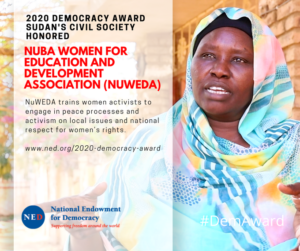 Panelists:
Panelists: 





